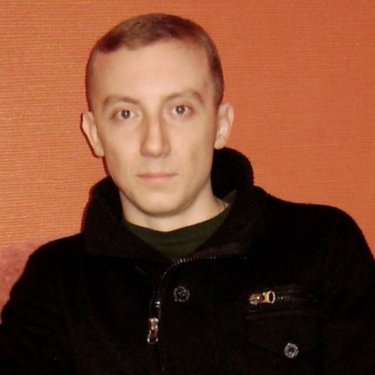Ukraine: Donetsk separatists sentence reporter to 15 years in prison

Update: After being held for two and a half years, Stanislav Aseyev was released on 29 December as part of an exchange of some 200 prisoners between the Ukrainian authorities and the Donbass’s pro-Russian separatists.
After this week’s announcement by eastern Ukraine’s self-proclaimed “Donetsk People’s Republic” (DNR) that a 15-year prison sentence has been passed on Stanislav Aseyev, a journalist held by Donetsk’s pro-Russian separatists since June 2017, Reporters Without Borders (RSF) condemns his sham trial and calls for his immediate release.
The sentence was passed in August but was not announced until 22 October by DAN, the DNR’s official news agency and only news source in this de facto autonomous region, which has become an information black hole.
DAN said Aseyev was convicted of espionage, organizing an “extremist community” and inciting “violation of the territory's integrity.” He was also sentenced to a 30-month ban on working as a journalist after his release, DAN said.
When the DNR “authorities” arrested Aseyev in 2017, he was covering daily life in this separatist-controlled region for Radio Free Europe / Radio Liberty and several Ukrainian newspapers, writing under the pen name of Stanislav Vasin. He was one of the few independent reporters to continue working in Donetsk after the separatists seized control of the city in the spring of 2014.
“No information ever emerged about Stanislav Aseyev’s so-called trial by the DNR ‘supreme court’ and no lawyer or international organization had access to this hostage,” RSF’s Eastern Europe and Central Asia desk said. “A confession probably obtained under duress constitutes the sole grounds for his detention, which is arbitrary and violates all rules of international humanitarian law. We call for his immediate release.”
Aseyev’s alleged spying is said to have included sending information about military positions in the DNR to the Security Service of Ukraine (SBU). The Russian state TV channel Rossiya 24 broadcast a “confession” by Aseyev in August 2018 in attempt to justify his detention. The long interview provided no information about the conditions in which he was being held, his state of health or any actual evidence substantiating the spying charge.
A few weeks before this broadcast, a friend of Aseyev, Yegor Firsov, accused the separatists of trying to extract a confession from Aseyev by threatening to arrest his mother.
Aseyev’s colleagues and friends hope that he could be released soon in a prisoner swap between the DNR and the Ukrainian government. Ukrainian President Volodymyr Zelensky mentioned Aseyev for the first time during a press conference on 1 October, when he said his government was doing the “utmost” to get him released.
Both the DNR and the neighbouring “Luhansk People’s Republic” (LNR), which is also controlled by pro-Russian separatists, are “black holes” from which little news and information emerges. The few remaining critical journalists have to operate clandestinely and visits by foreign observers are increasingly infrequent.
Ukraine is ranked 102nd out of 180 countries in RSF’s 2019 World Press Freedom Index.



